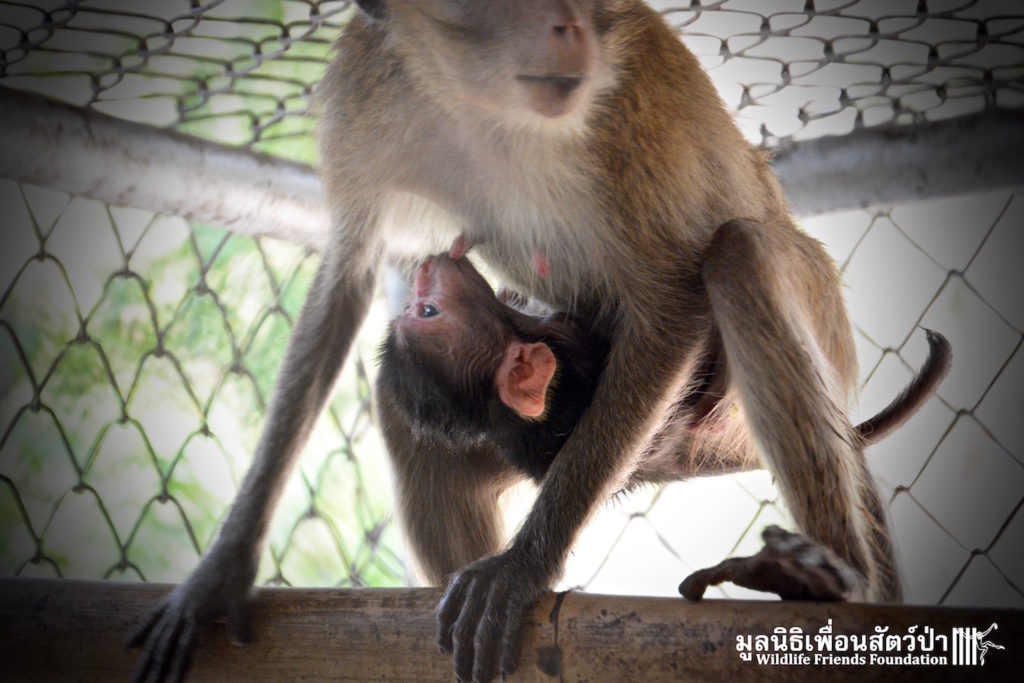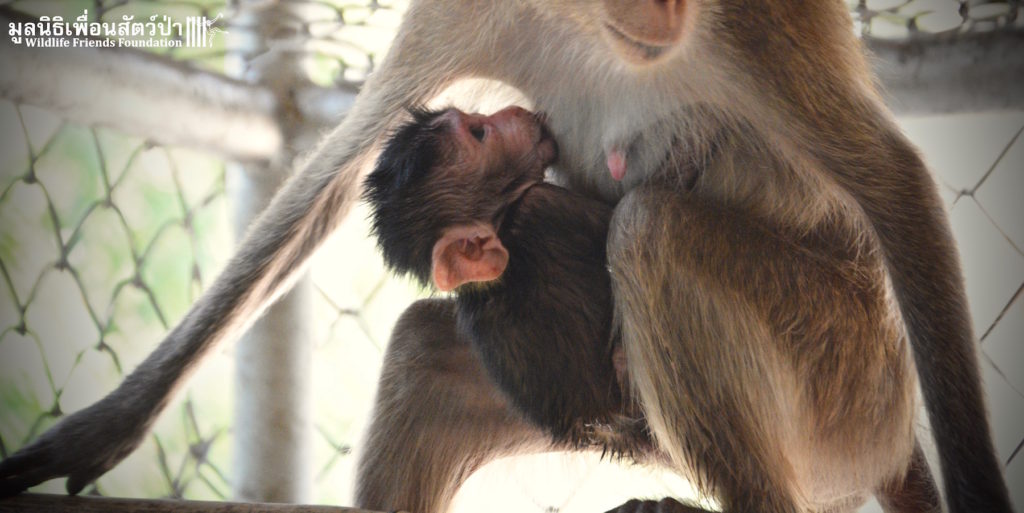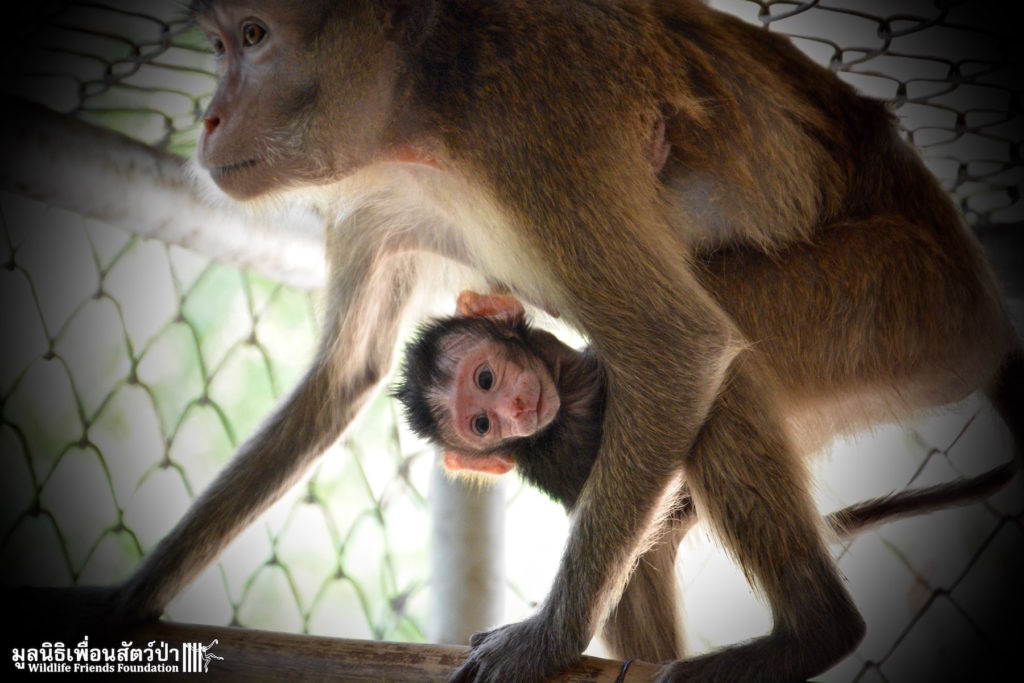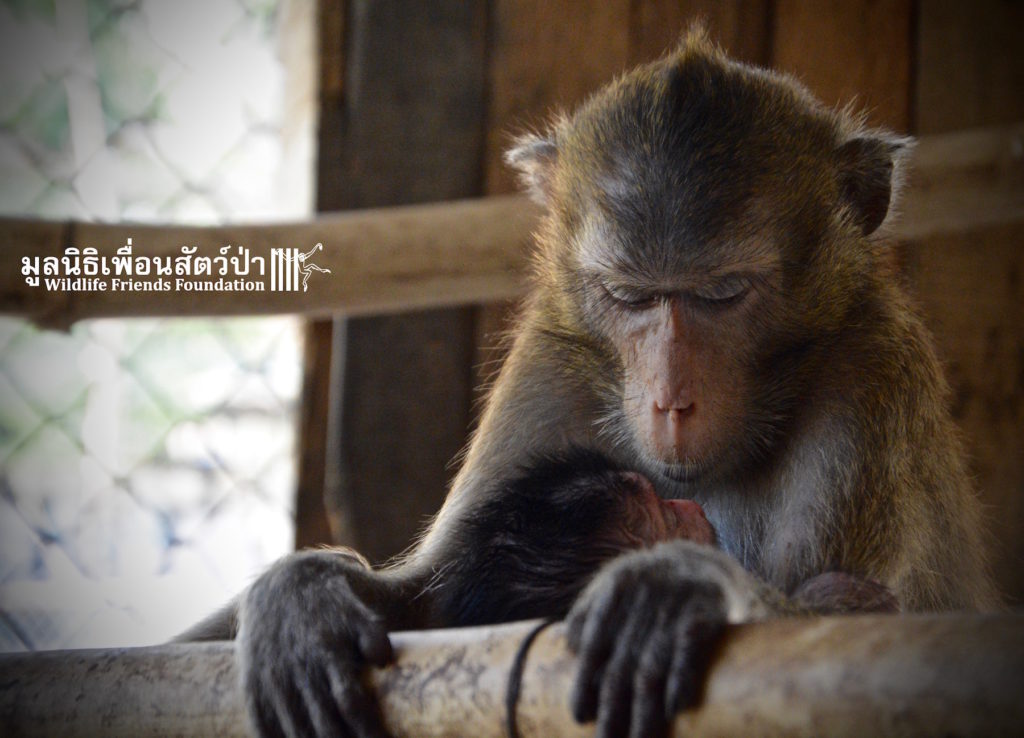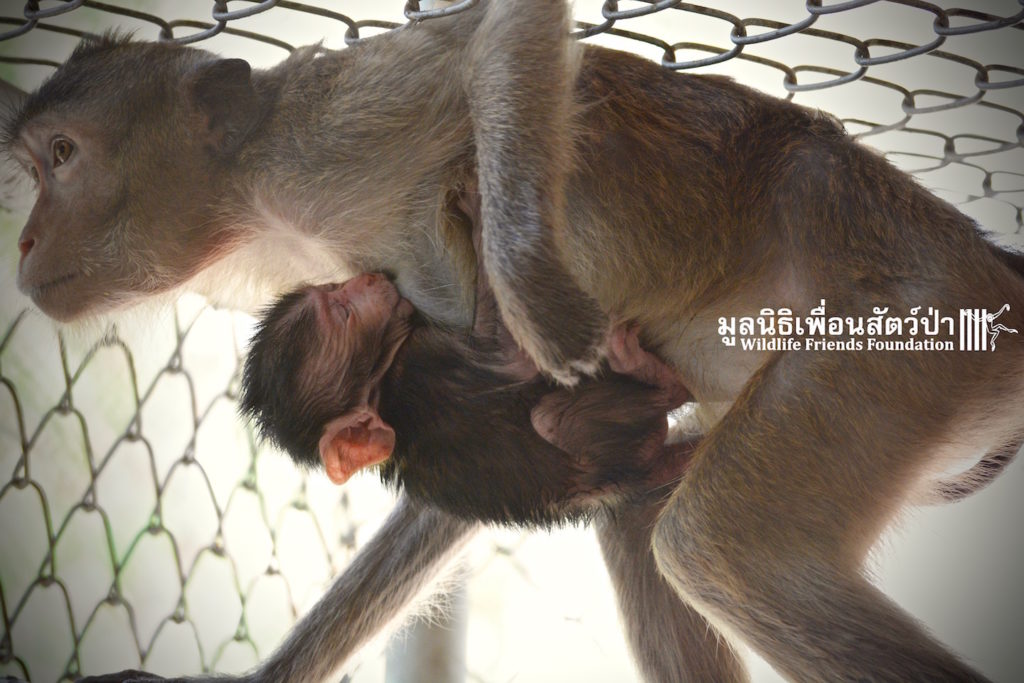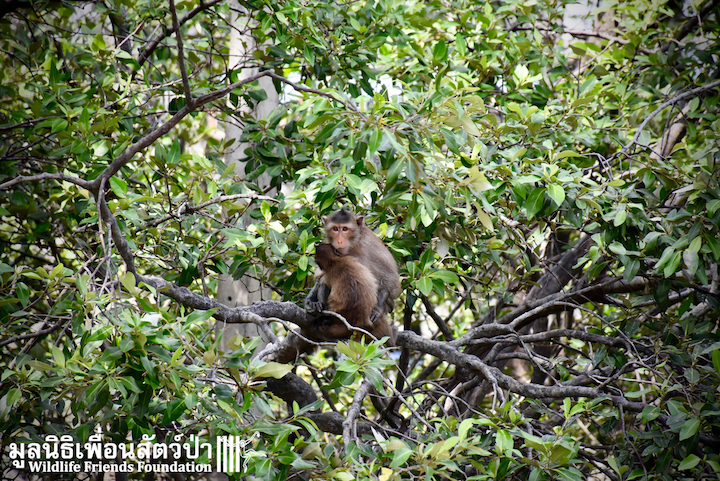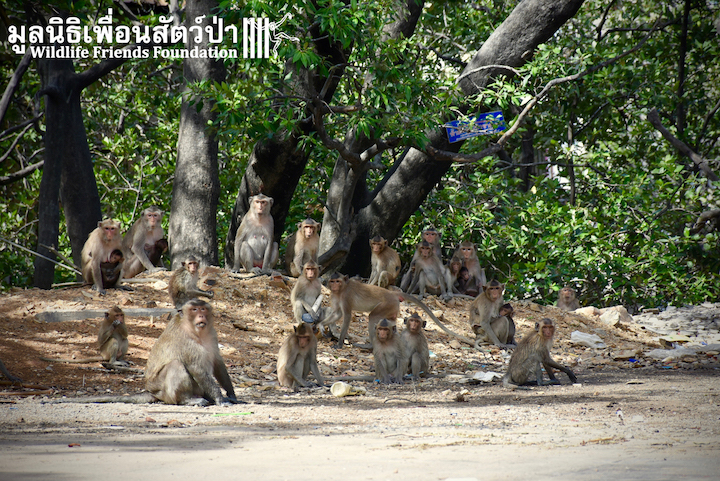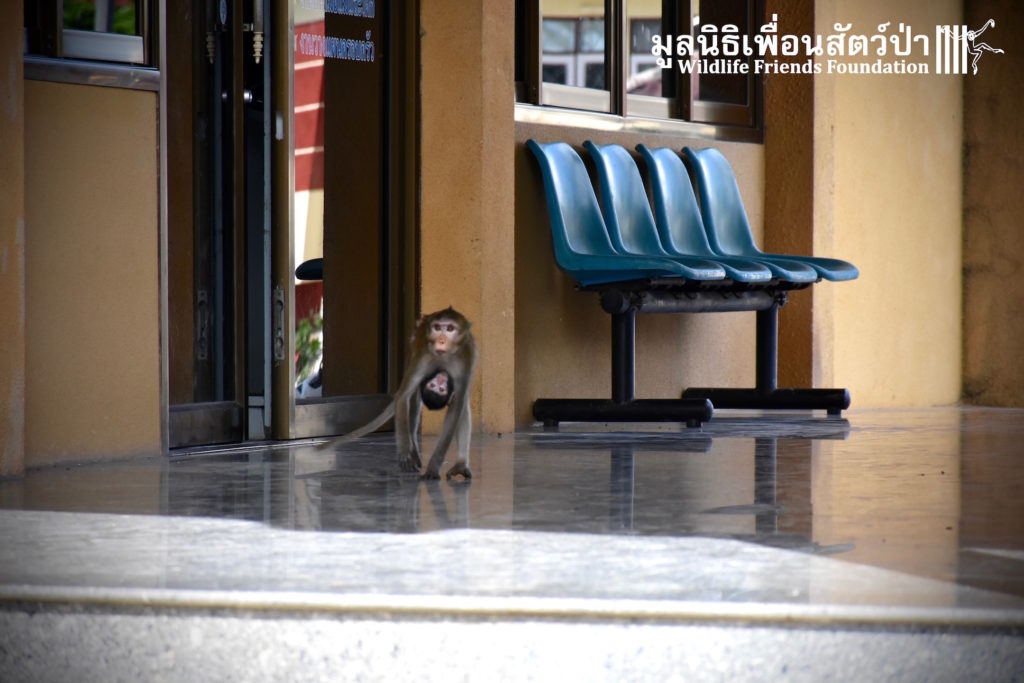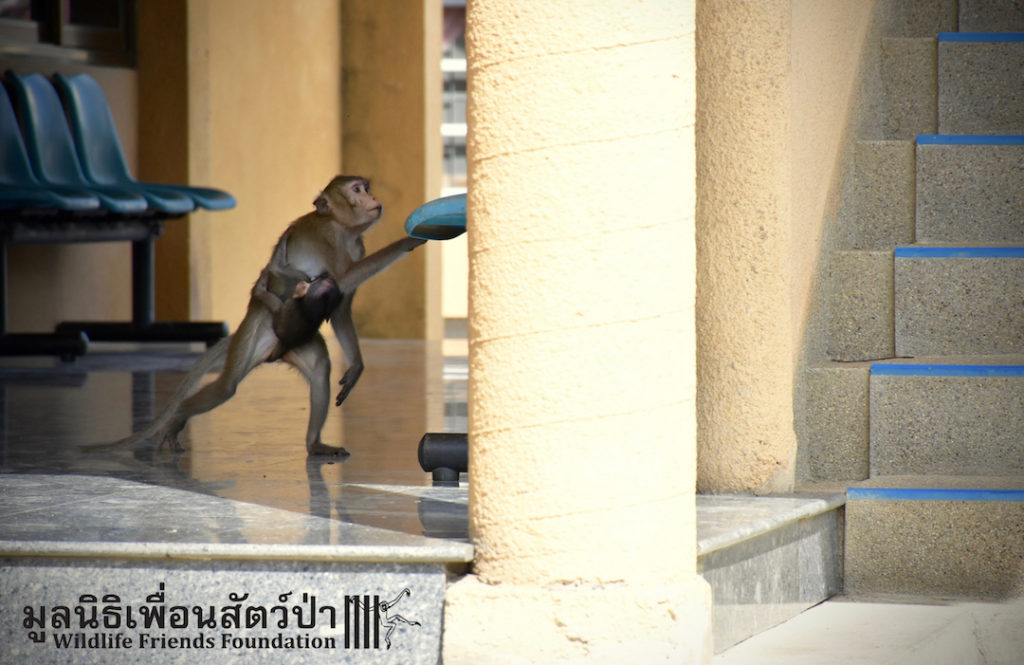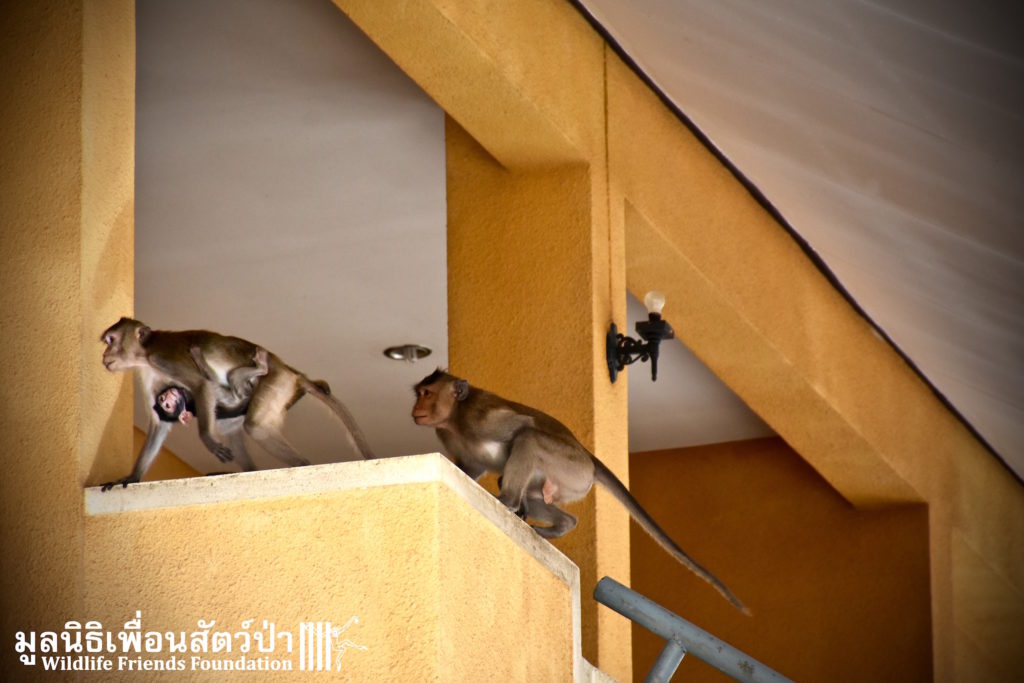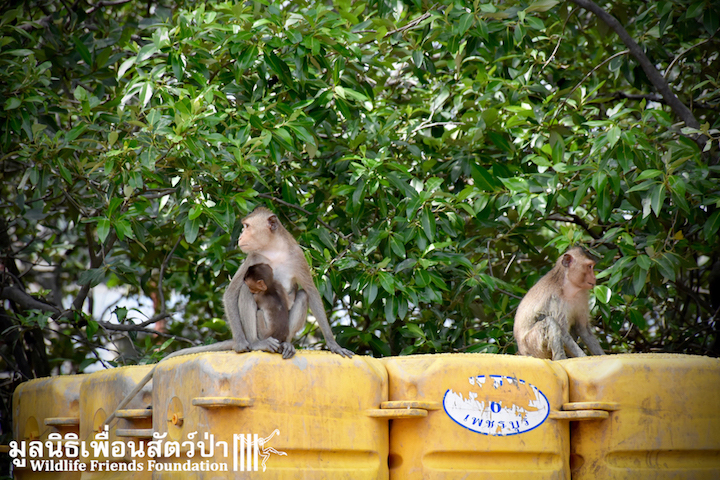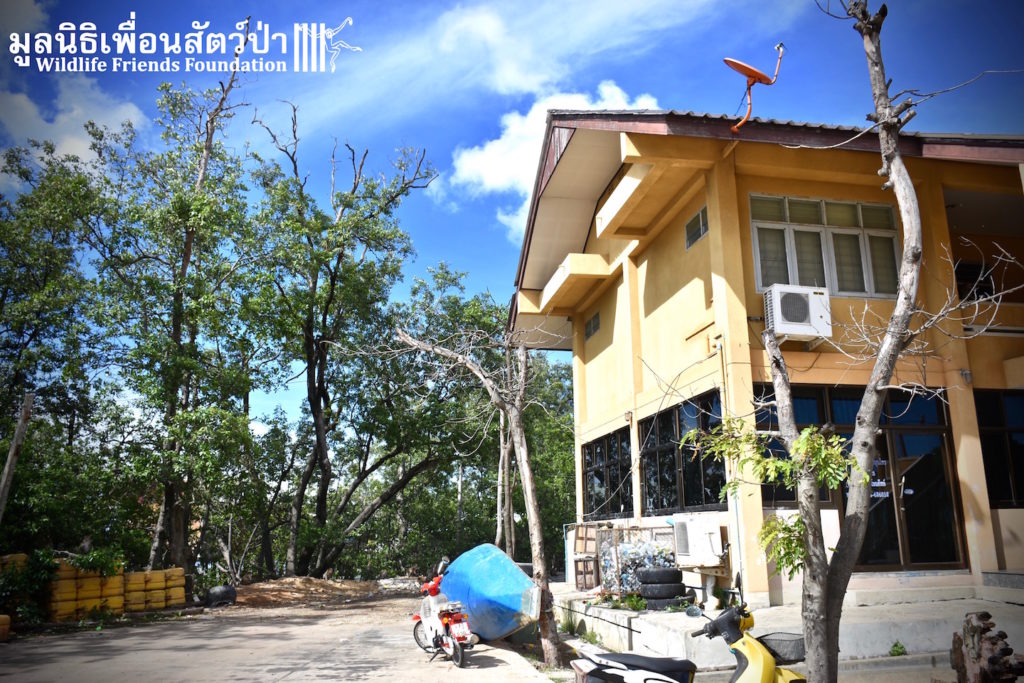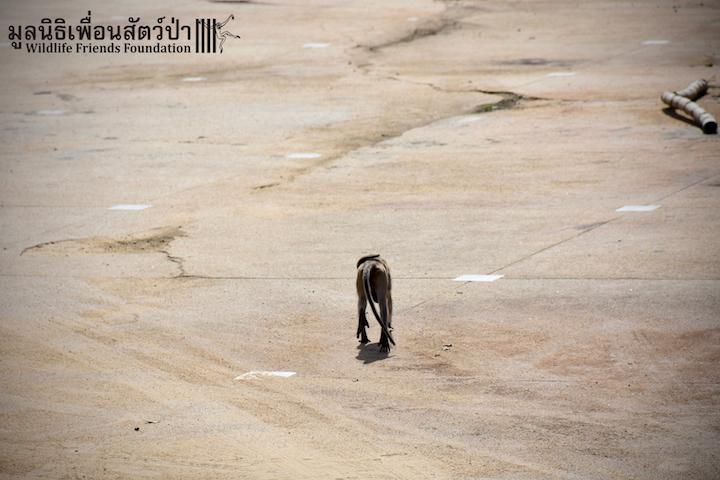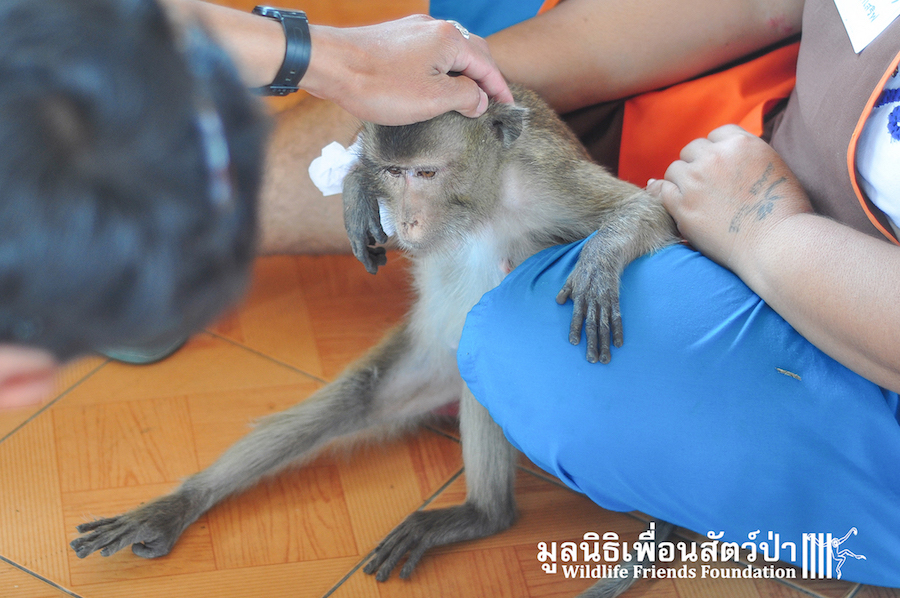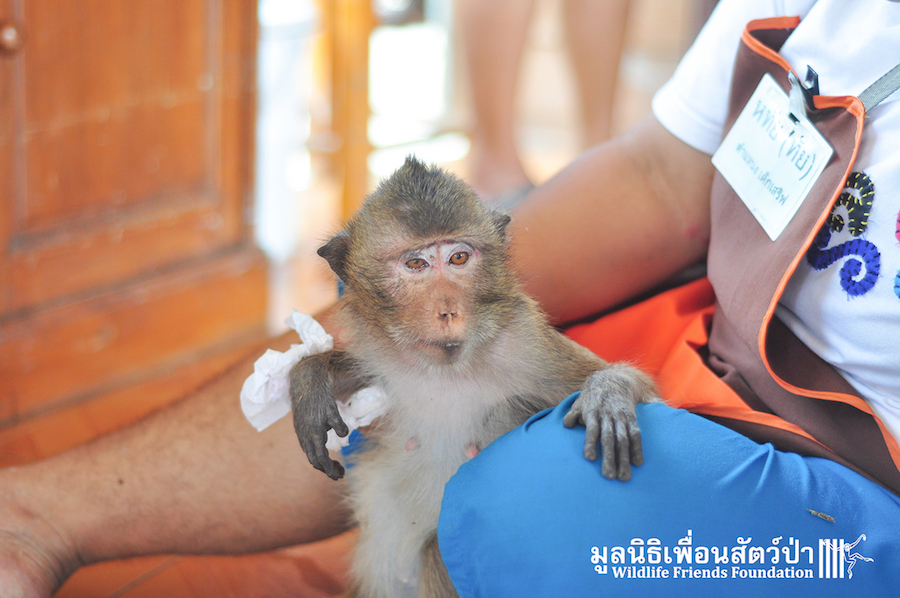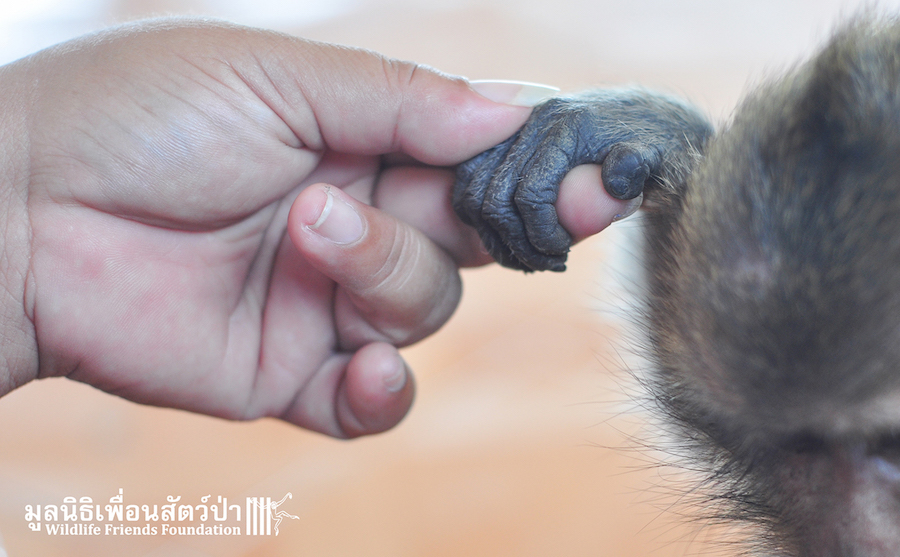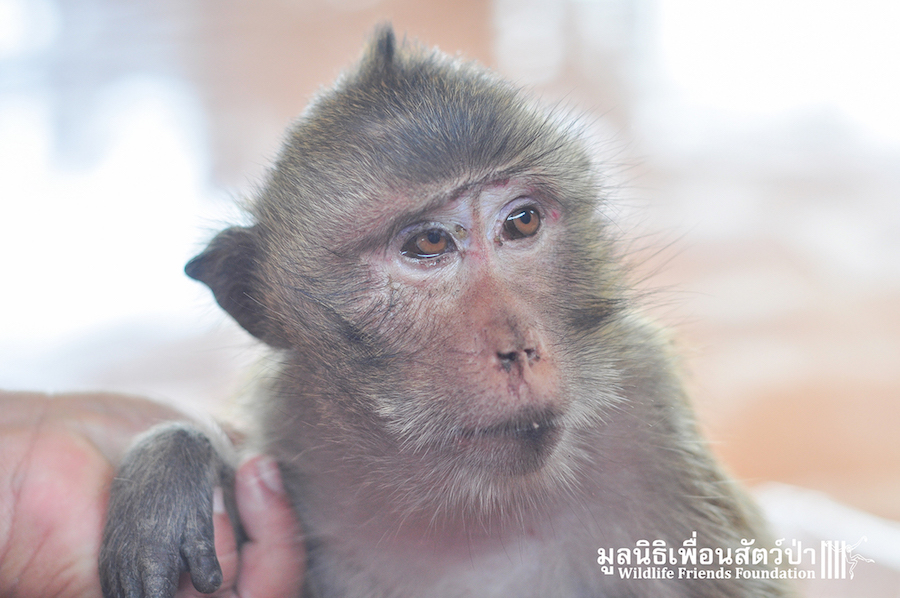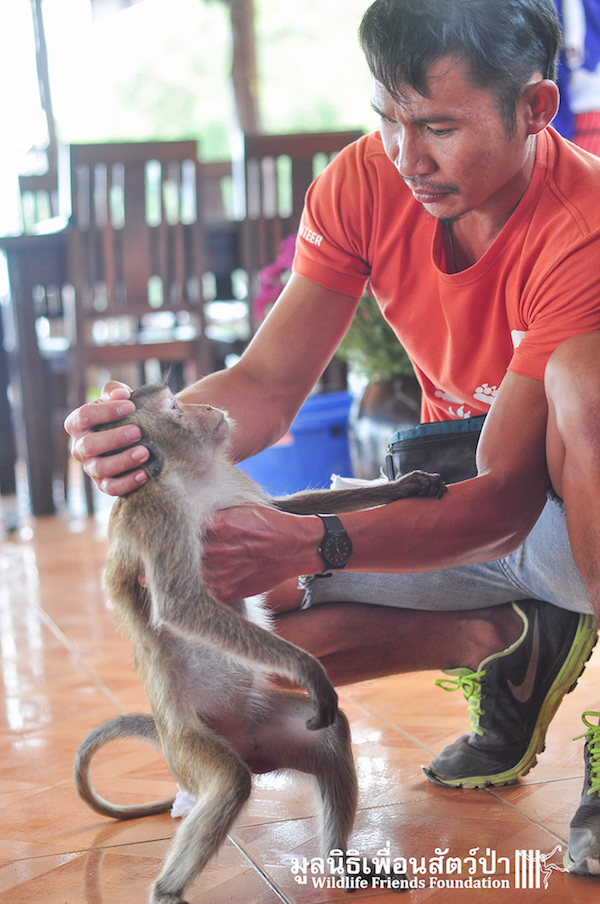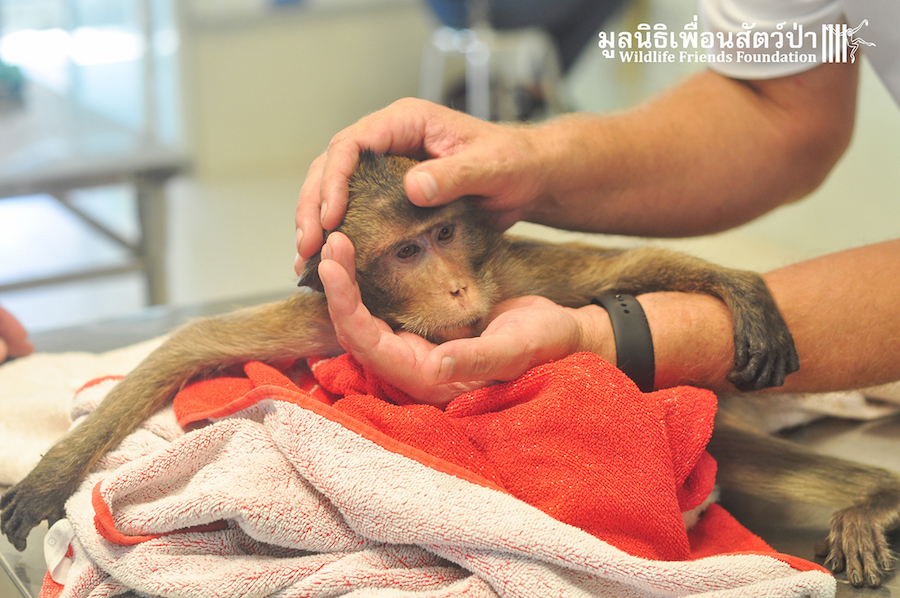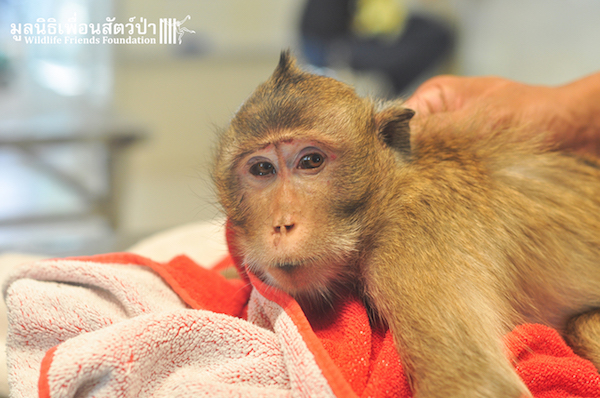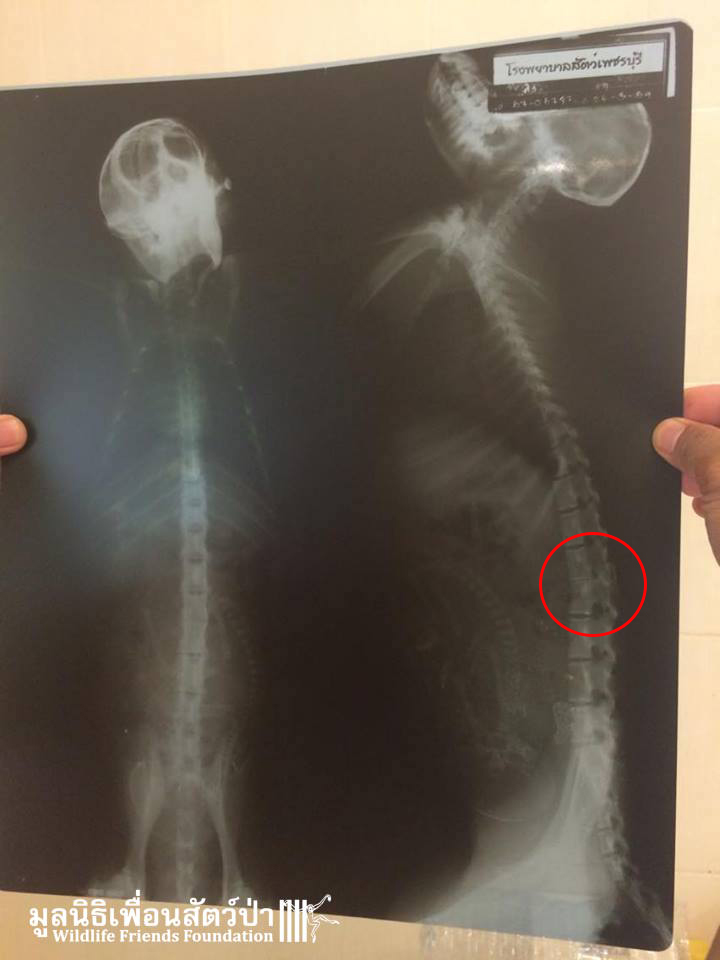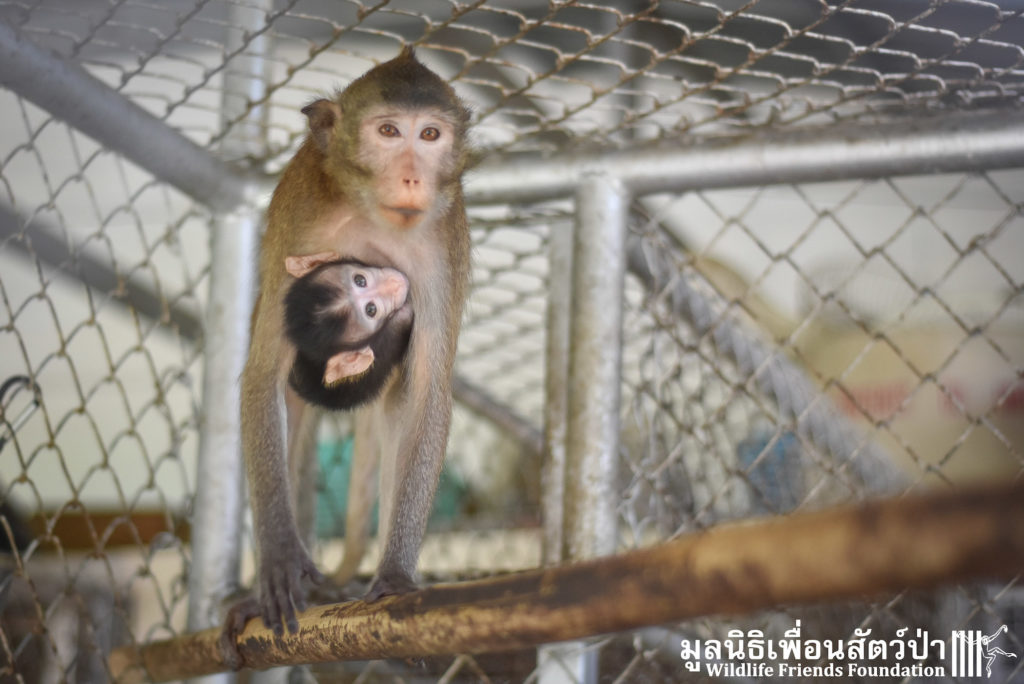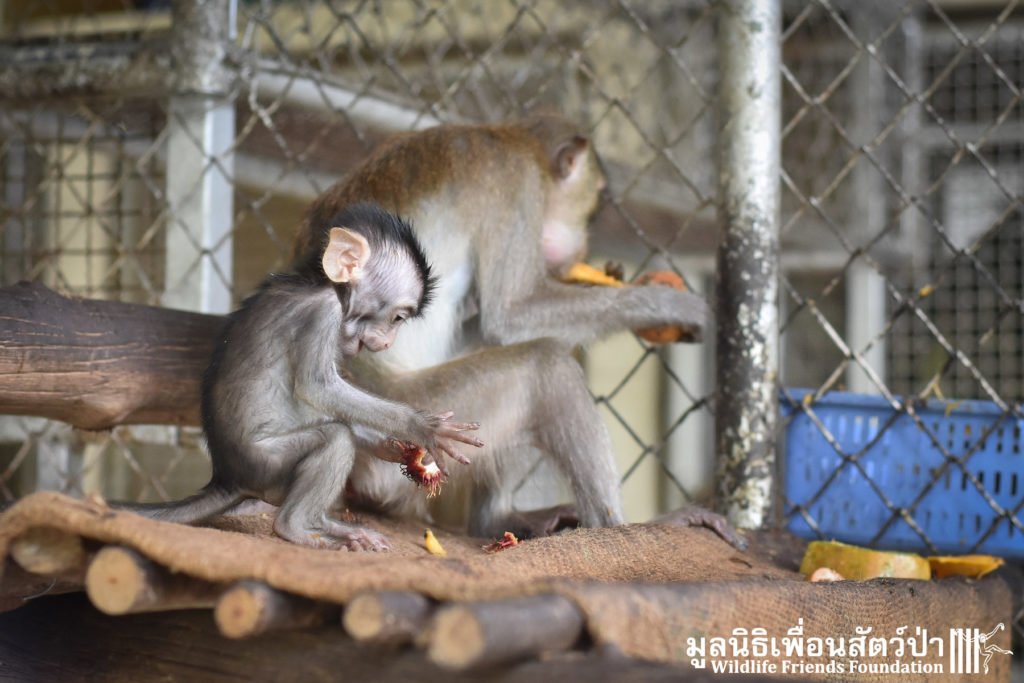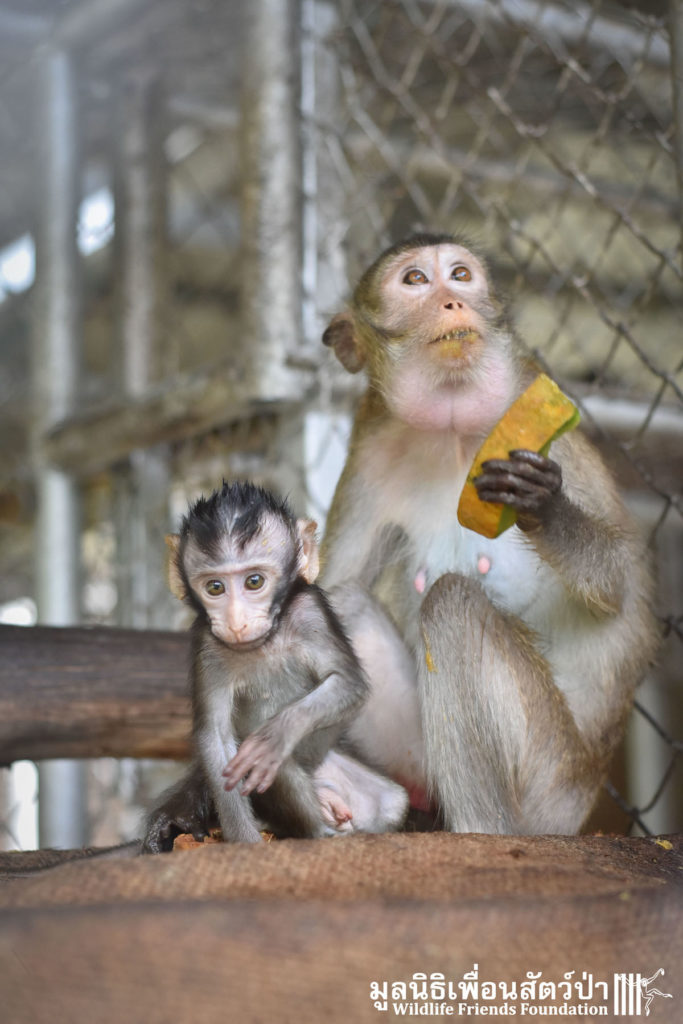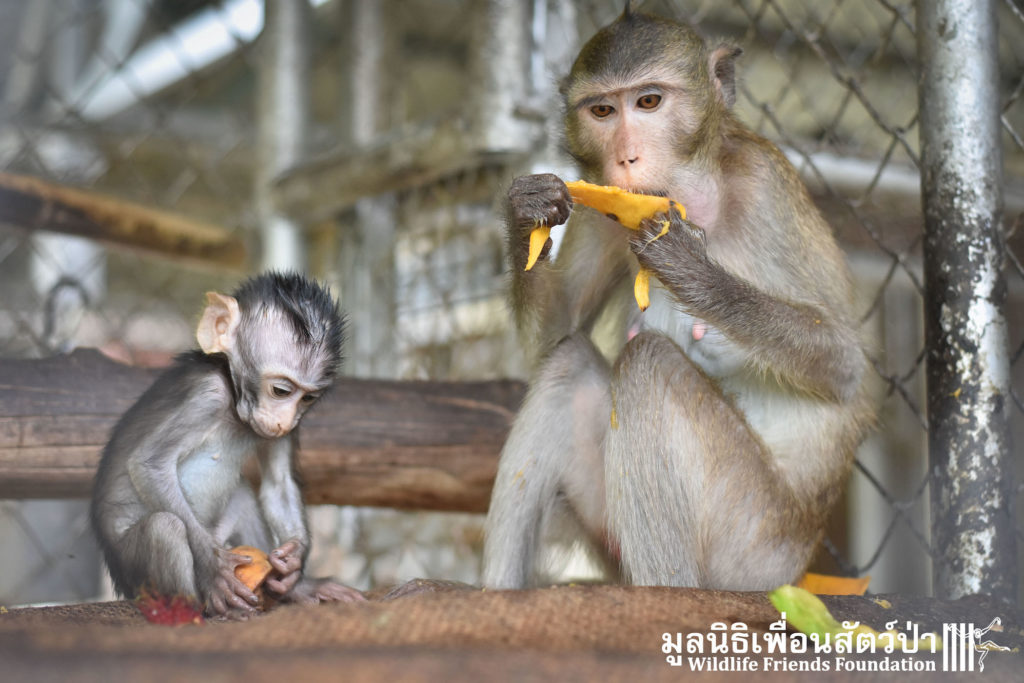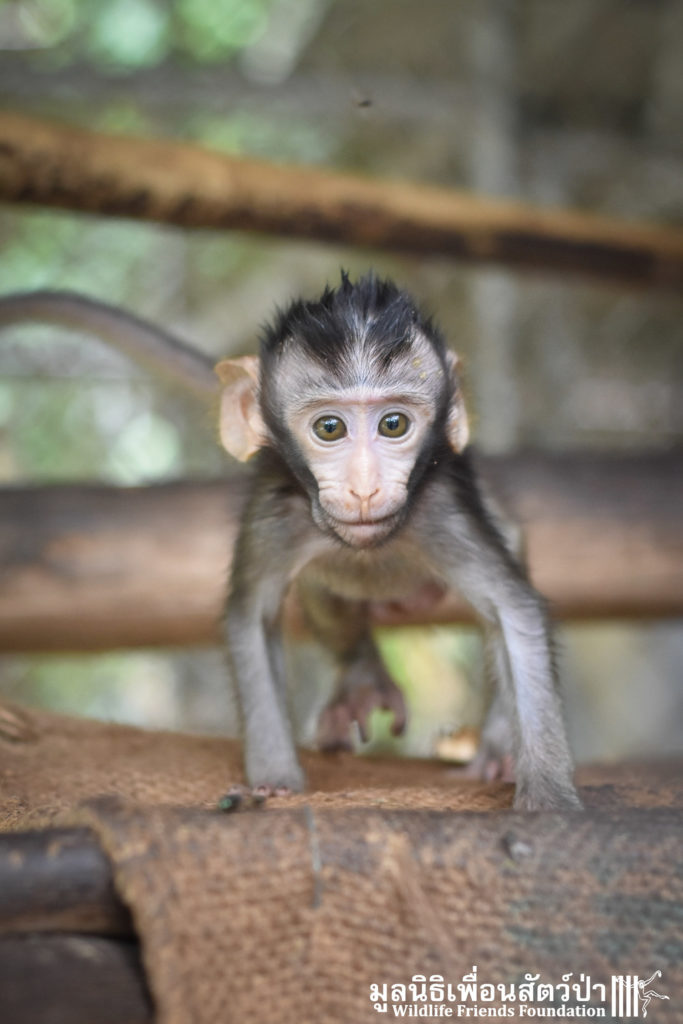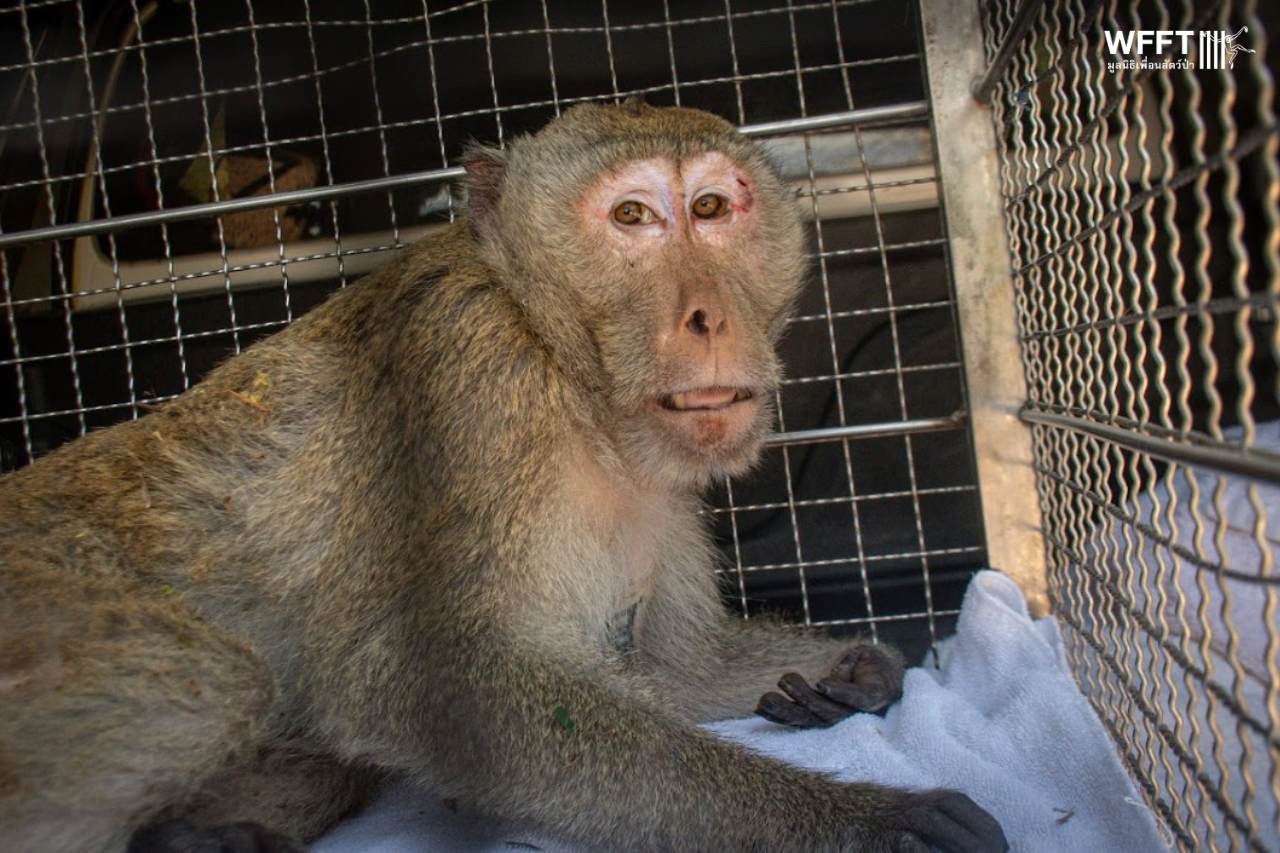It's time to take action—learn how you can help stop this exploitation and protect slow lorises from further harm.
Here is a Wonderful story for the Weekend….
A few days ago we said a very happy goodbye to one of our very special temporary residents and her infant. ‘Patti Harn’ (English: Miracle) the long-tailed macaque (Macaca fascicularis) and her infant ‘Mali’ (English: Jasmine) where released back to the wild after spending approximately 5 months here at the WFFT Wildlife Hospital.
Patti Harn had fallen from a tree into the muddy water under a mangrove forest in which she lives. A villager found her unable to breath with her face under the water and rescued her, he then took her home, washed and fed her then called us to help. Upon arrival it seemed she has a deformed spine caused by an old injury and possibly some nerve damage. She was rushed to a local hospital for an x-ray; this confirmed the vet teams suspicion that she has a deformed spine, to our surprise the x-ray revealed that she was also carrying a baby. She was then taken to the WFFT Wildlife Hospital for further treatment. After spending almost 2 months under intensive care and rehabilitation from our vet team Patti Harn made extraordinary improvements that none of us had foreseen. To the surprise of us all she regained almost all of her strength and abilities to again enable her move around and climb. Further adding to our amazement she also she gave birth to a healthy baby girl who we named ‘Mali’. Showing us that Miracles actually do happen!!!
The long-tailed macaque is listed as Least Concern (LC) by the IUCN Red list of Threatened Species, in view of its wide distribution, presumed large population, tolerance of a broad range of habitats, occurrence in a number of protected areas. Although it is under heavy hunting pressure for the pet trade, meat, sport and trophies, this is not considered a major threat to the species overall. Females are often taken into breeding facilities and males are exported internationally primarily for use in laboratory research. They are regularly persecuted as pests. Habitat loss is also a localised threat, but the species can persist in a variety of habitats and very adaptable.
After spending almost 5 months in our care we made the decision that Patti Harn and Mali were both strong enough and ready to head home. Long-tailed macaques live in large multi-male/multi-female groups, within which diverse social structures are exhibited. Females stay with the group the entirety of their lives while males disperse when they become sexually mature. We hoped that both Patti Harn and Mali would be recognized and accepted back into her natal group. Last week the WFFT rescue team headed out to the location where she came from with the aid of the wonderful family that saved her life. We located the large group in which she came from and released her from the transportation cage.
Upon release the alpha male of the group approached her without showing any aggressive behavior. Some of the other group members came to investigate and welcomed her back to the group. After reacquainting herself with the area in which she has called her home her whole life she climbed up into the trees and is back in a cage free existence. We hope that she will stay out of trouble and continue to be an amazing mother to her young infant. Some may ask why have we sent her back to the wild? “The wild is dangerous…” We here at WFFT do everything in our power to release animals back to the wild wherever possible. We knew her family group as she was rescued directly from them. A needless lifetime behind bars is no life at all for a wild animal. Run free you special little souls!!!
The rescue of Patti Harn – http://bit.ly/1TwTpFR
The birth of Mali – http://bit.ly/2b0HzKQ

